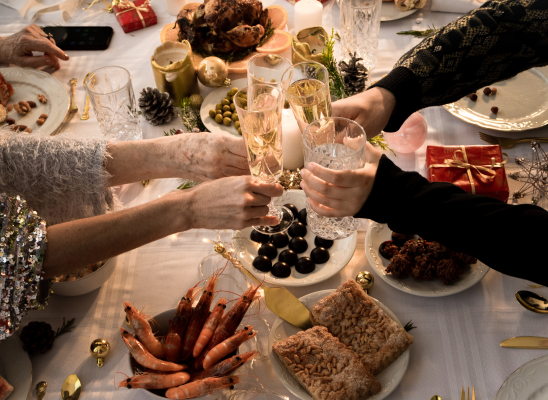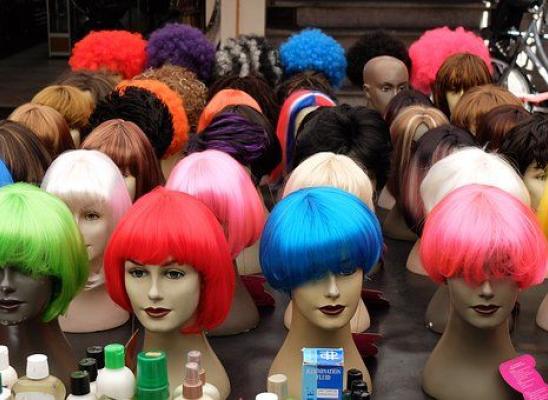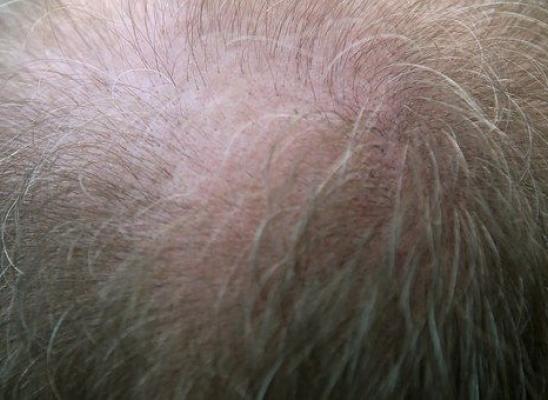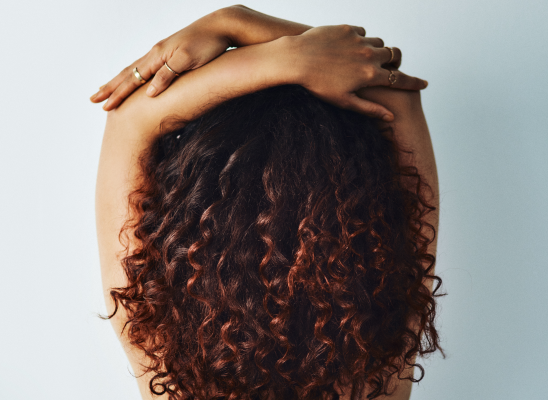Holiday Indulgences and Trich: A Guide To Mindful Celebration
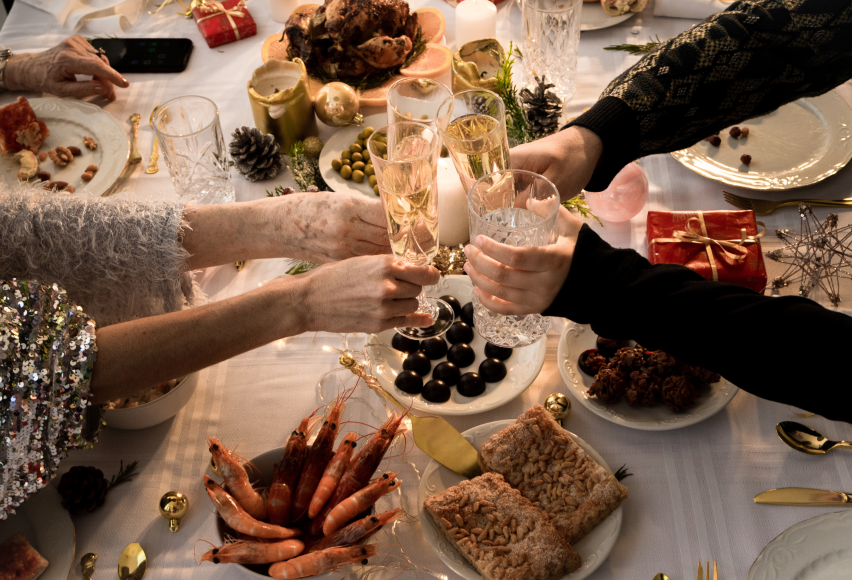
Online test
Find out the severity of your symptoms with this free online test
The holidays are upon us. They’re a time of celebration, connection, and indulgence. If you’re living with a body-focused repetitive behavior (BFRB) like trichotillomania, navigating this time of year can be especially challenging. Along with the get togethers and family celebrations come the sugary treats and festive cocktails that are often part of the traditions we enjoy. You might not immediately think that festive food and drink could exacerbate BFRB symptoms, but they can. Sugar and alcohol can affect your stress levels, impulse control and your mood. Of course you want to enjoy the indulgences of the holidays, and with some mindful strategies you can maintain control over triggers and enjoy your holiday treats!
Sugar and Stress Regulation
Those cute sugar cookies are tempting! And you’re probably going to enjoy some, but it’s easy to lose track of how many you’ve had. Beware of the sugar crash.
Consuming large amounts of sugar may provide a temporary energy boost, but it also results in rapid blood sugar spikes followed by crashes. These fluctuations can increase feelings of stress and anxiety, common triggers for BFRBs. The body’s response to low blood sugar - shakiness, irritability, or fatigue - can mimic stress signals, potentially intensifying the urge to pull.
High sugar intake has also been linked to increased impulsivity and compulsivity in a number of disorders. A 2021 study found that a diet high in refined sugar had a negative effect on impulsivity and compulsivity in people with trichotillomania.
Alcohol and Impulsivity
Festive libations are also a part of celebrating the holidays for many. If you have a BFRB like trich, it’s important to be aware of the potential effects that alcohol can have on your symptoms.
It’s well-known that alcohol acts as a depressant in the body. It reduces inhibitions and brings a sense of relaxation, which on the surface might sound like a good thing and a way to cope. Indeed, studies suggest that people with trich do tend to use alcohol as a way of dealing with negative feelings and the urge to pull. However, it also impairs judgment and self-control. Alcohol use is strongly linked to increased impulsivity and impaired emotional processing. If you’re living with trich, alcohol can weaken your ability to resist the urge to pull or focus on coping strategies. Alcohol can also be dehydrating and disrupt your sleep, further intensifying stress and the risk of triggering a pulling episode.
Mood Regulation
Both sugar and alcohol influence similar areas of the brain and the release of neurotransmitters such as dopamine and serotonin, which play critical roles in reward/pleasure and mood regulation. While sugar may temporarily boost mood by increasing dopamine, the subsequent crash can leave individuals feeling low or agitated. For someone with trich, that shift can be a trigger to pulling. Similarly, alcohol's initial mood-enhancing effects are often followed by feelings of sadness or anxiety as its relaxing effects wear off.
Strategies for Mindful Celebration
You don’t have to let the fear of triggering a pulling episode stop you from celebrating the season. With some planning, you can enjoy the festivities all season long.
Practice Mindful Eating and Drinking
Make a plan before you go. Keep in mind how you want to feel before and after the holiday gatherings. Remember this intention as you navigate the season.
Be mindful of what you’re eating. Take time to choose treats and drinks and be mindful of your limits. Slow down and savor these flavors. Also pay attention to how you’re feeling. Are you enjoying the moment or are you stress eating or drinking?
Choose healthy alternatives when you can. Mocktails are a great way to enjoy the festivities without the alcohol’s effects. Look for lower sugar treats. And drink your water! Staying hydrated can help maintain your energy and reduce the urge to overindulge.
Keep Stress In Check
The rush of the holidays, family gatherings, shopping, and worries about your hair pulling can disrupt routines and send stress levels through the roof, leading to over-indulgence and increased risk for pulling. Incorporating stress management practices into your holiday plans can help you to enjoy the festivities and keep stress in check.
- Make time for exercise. Take a walk or a yoga class.
- Make time for relaxation. Try some mindfulness exercises like a body scan or meditation.
- Maintain your healthy, normal routine as much as possible.
- Let your family and friends know how they can support you.
Sometimes, despite our best efforts, the holidays are just overwhelming. If you find yourself struggling, a mental health professional can help you find healthy ways to navigate the holidays.
This holiday season, let mindfulness guide you through the season. When you prioritize your well-being, you can enjoy all that the holidays have to offer without compromising the progress you’ve made in managing your hair pulling.
References
1. Rath, L. (2020, May 12). The link between low blood sugar and anxiety. WebMD. https://www.webmd.com/diabetes/low-blood-sugar-anxiety-link
2. Grant, J. E., Valle, S., & Chamberlain, S. R. (2021). Nutrition in Skin Picking Disorder and Trichotillomania. Frontiers in psychiatry, 12, 761321. https://pmc.ncbi.nlm.nih.gov/articles/PMC8650212/
3. Woods, D. W., Flessner, C. A., Franklin, M. E., Keuthen, N. J., Goodwin, R. D., Stein, D. J., Walther, M. R., & Trichotillomania Learning Center-Scientific Advisory Board (2006). The Trichotillomania Impact Project (TIP): exploring phenomenology, functional impairment, and treatment utilization. The Journal of clinical psychiatry, 67(12), 1877–1888. https://pubmed.ncbi.nlm.nih.gov/17194265/
4. Herman, A. M., & Duka, T. (2019). Facets of impulsivity and alcohol use: What role do emotions play? Neuroscience & Biobehavioral Reviews, 106, 202-216. https://www.sciencedirect.com/science/article/abs/pii/S0149763417308953
5. Fortuna J. L. (2010). Sweet preference, sugar addiction and the familial history of alcohol dependence: shared neural pathways and genes. Journal of psychoactive drugs, 42(2), 147–151. https://pubmed.ncbi.nlm.nih.gov/20648910/
5. How the Christmas festive season affects trichotillomania — Strands. (2024, February 13). Strands. https://www.strandshealth.com/trichotillomaniablog/how-the-christmas-festive-season-affects-trichotillomania
Online test
Find out the severity of your symptoms with this free online test
Start your journey with TrichStop
Take control of your life and find freedom from hair pulling through professional therapy and evidence-based behavioral techniques.
Start Now
